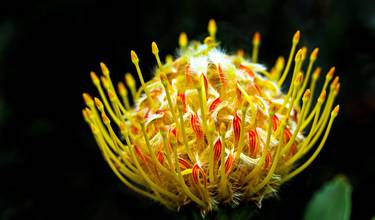The days are getting warmer and the evenings are getting longer. This also means that the pollen season has started. The amount of pollen in the air has increased significantly and the season now starts earlier and earlier. According to researchers from around the world, this may be due to man-made climate change.
The trends are the same across the northern hemisphere
Data from Switzerland show that the pollen season in Central Europe moved 15 days between 1969 and 2006.
During the period from 2001 to 2011, the season for tree pollen began one week earlier than it did from 1994 to 2000 on average, according to a US study. This is due to the fact that the trees come into leaf quicker when the temperature rises. The trees shed their pollen sooner, which is then carried in the air and causes great inconvenience for the many people who suffer from pollen allergies.
A common feature, amongst the regions where the pollen season has started earlier, is the fact that the average temperature has been increasing during the study periods.
More people become allergic to birch pollen
Birch is the type of wood that most people are allergic to in Europe. Birch trees are mainly found in Northern and Central Europe, where an increasing number of people suffer from allergies. Research has yet to show what the increase in allergy sufferers is caused by. Allergies are known to be hereditary, but besides that, not much is known.
Anne Holm Hansen, who is the deputy director of Astma-Allergi Danmark, which is a Danish organisation that works on helping people with asthma and allergies, says: “Fundamentally, we do not know what it is caused by. There are many theories. The only thing we know is that the things we react to are the things we breathe. If you go to China, where birch trees do not exist, you will see that allergy to birch pollen does not exist. On the other hand, they have widespread allergies to a particular rice plant. So even if you are hereditarily predisposed to becoming allergic, you will not develop the symptoms if you are not exposed to what you are allergic to.”
Compiled studies with data from 20,000 people across Europe show that there are twice as many people of the European population today, who suffer from allergies to birch pollen, as compared to when the studies began. Previously, the percentage was at 8%, but now it has risen to 16%.
Even people living by the Mediterranean, where birch trees do not grow, are today exposed to large amounts of birch pollen because it is carried with the wind across the continent.
Invasive ragweed creates great challenges
Anne Holm Hansen says: “Climate change brings about invasive plant species. There are certain areas in Germany and Switzerland where ragweeds have grown out of control, and they are extremely allergenic. We have seen them in Denmark as well, and the plant species has never been spotted here before.”
The emergence of the ragweed, which sheds its pollen late in the year, has made the pollen season longer. At the same time, the birch season starts earlier because birch trees bloom sooner due to the rising temperatures.
Research is a low priority
Anne Holm Hansen says: “There is a substantial increase in several types of allergies, but in spite of that, we do not hear much about it. Research is a low priority because allergies do not interest many people.”
There is no cure for the allergies. The best you can do is to get vaccinated. However, the vaccine is only prescribed for severe cases of pollen allergies due to the side effects that accompany it.
The medicine has not been developed for many years, and more research is therefore needed according to Anne Holm Hansen.
Other types of wood can help people suffering from allergies
Anne Holm Hansen says: “If you want to do something good for allergy patients, you have to replace the ordinary allergenic trees with other types.”
The trees that cause problems for people suffering from pollen allergies are wind pollinated. This means that the trees shed their pollen, which then blows around in the air that people breathe. Other trees are insect pollinated. This means that these trees do not rely on shedding pollen.
Anne Holm Hansen says: “Flowering trees are often insect pollinated, and this causes much less allergies than wind pollinated trees do. In many places, Japanese cherry trees are planted, which leads to people developing fewer allergy symptoms and getting better. We do not need to plaster everything with asphalt, we can actually plant trees that are both more beautiful and that help more.”








